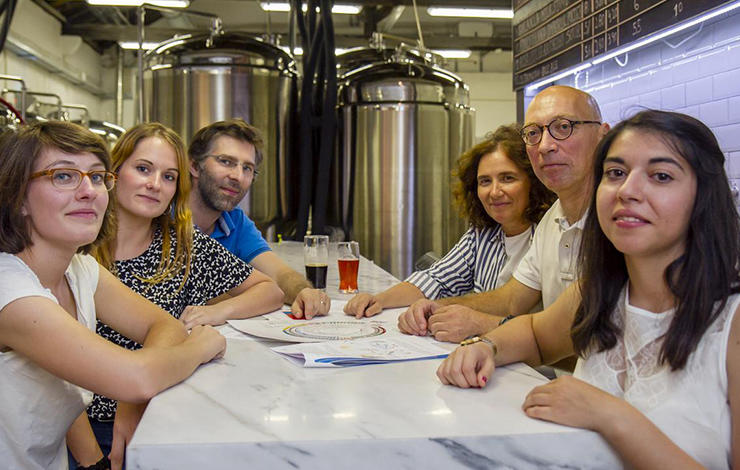10-10-2016

A new study led by José Paulo Sampaio, professor at Faculdade de Ciências e Tecnologia of Universidade NOVA de Lisboa, shows surprising results in the domestication event of Ale beer yeasts, being very distinct from the domestication event of wine yeasts. This research work, done in collaboration with scientist from Argentine and Germany, is published in Current Biology (Cell Press).
Presently, although many varieties of beer are produced, they all come down to two main groups: ales and lagers. These two categories differ on the fermentation conditions and the type of yeast used, aspects that influence the sensorial properties of the beer. Ale beers are produced at room temperature and fermented by Saccharomyces cerevisiae, while lagers are produced at low temperatures and fermented by Saccharomyces pastorianus. After fermentation of ale beers yeasts remain in suspension in the fermentation vessel (“top-fermenting” beers), while in lager beers yeasts tend to settle to the bottom (“bottom-fermenting” beers).
In the current work, the researchers analyzed the complete genome sequences of a selected group of ale beer yeasts, and concluded that the domestication process that gave rise to the Saccharomyces cerevisiae strains used today for brewing the different kinds of ales (British, German, and Belgian) is distinct from another major yeast domestication event, that of wine yeasts. “We were surprised to find that the genetic diversity of beer yeasts was much higher than that of wine yeasts (domesticates normally harbor much less genetic diversity that their closest wild relatives)”, explained José Paulo Sampaio, principal investigator at UCIBIO. “We were even more surprised to learn that besides forming a new group (that we call the Beer clade), beer yeasts form additional groups. Therefore whereas wine yeasts from any place in the world, say France and New Zealand, cluster in the same group and are genetically very similar, quite the opposite happens for beer yeasts. Indeed some beer yeasts that ferment a popular type of Bavarian wheat beer are more closely related to sake yeasts that to British ale yeasts.”
The results of this study “will contribute to a better understand of the (multiple) trajectories of yeast domestication”. In contrast to animal or plant domestication, microbe domestication is poorly understood, although it has become a very popular field of research in the recent years. “At a more applied level these findings can be exploited by brewers to devise new beers and to understand the particularities of a specific beer type”, explained José Paulo Sampaio.